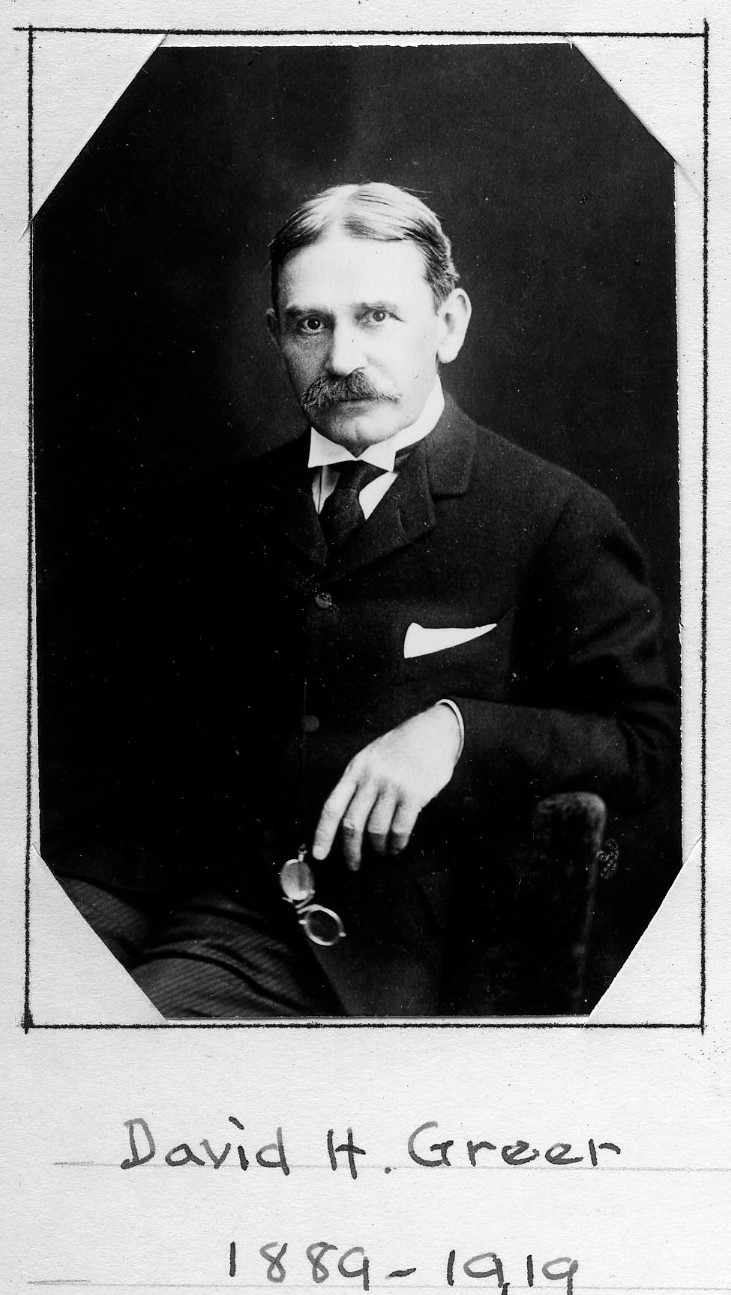Clergyman/Bishop
Centurion, 1889–1919
Born 20 March 1844 in Wheeling, West Virginia (then Virginia)
Died 19 May 1919 in New York (Manhattan), New York
Buried Cathedral Church of Saint John the Divine , Manhattan, New York
, Manhattan, New York
Proposed by Cornelius Vanderbilt II and Henry Codman Potter
Elected 5 October 1889 at age forty-five
Proposer of:
Seconder of:
Century Memorial
The American clergy and the Century membership have suffered one great loss in common during 1919. Bishop David Hummell Greer was one of those churchmen whose advancement to the leadership of his diocese was recognition, much less of his usefulness in the hierarchy of his own church than of his service to the Church Universal. Sincere Christian piety and the greatest simplicity of manner united in his personality with an organizing and administrative genius which was bound to make whatever parish and whatever church he served a powerful influence in the community.
He was a strongly convinced adherent of his own denomination; but he did not hesitate to say publicly that the people were “becoming impatient of denominational barriers,” and that for himself, while he did not wish denominations to be abolished, he would refuse to recognize them as an obstacle to fellowship and union. He was a resolute advocate of reduction of armaments as a contribution to international peace; he opposed the arming of the United States for war, even in the two years after 1914; but in speaking to his people during April, 1917, he accepted our government’s inevitable decision, with all that it implied, as a “service to our country and to the rest of mankind,” and on his seventy-fourth birthday, celebrated at the crisis of our participation in the war, he declared it to be his one regret that he was too old to go with the American army to the front.
For the Century, Bishop Greer had the same strong personal regard as was shown during so many years by his eminent predecessor. The City of New York has reason to miss him for his vigorous public spirit, for his readiness to participate even in a political campaign when the public interest was at stake, and for his practical interest in all movements for the public welfare.
Alexander Dana Noyes
1920 Century Association Yearbook

